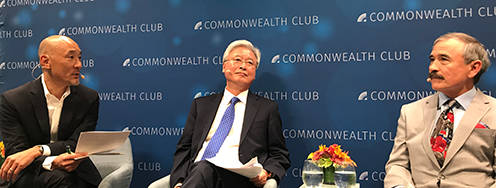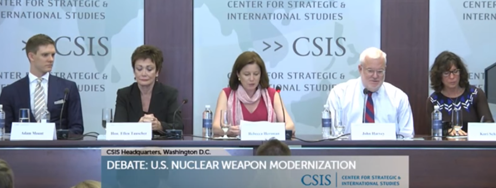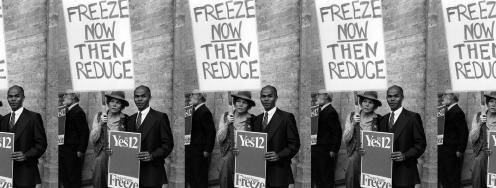Toward a Nuclear-Free Future
By Joseph Cirincione
Representatives from almost 200 nations warmly greeted President Barack Obama at the United Nations today. Most like him personally and his popularity has fueled a huge increase in global approval for the United States. The latest figures from the Pew Research Center show large majorities in most nations now have a favorable view of the United States, a significant change from 2008, when George W. Bush was president.
But American security is not a popularity contest. The test for Obama is whether he can translate approval into backing for his policy initiatives. While he spoke of many vital issues in his speech, including global warming, Middle East peace, and pandemics, he devoted special attention to the threat of nuclear weapons. It is the theme of a special session of the U.N. Security Council on September 24 that Obama himself will chair—the first time a U.S. president has ever done so.
Obama is right to focus early on nuclear weapons, for they pose the gravest threat to America. One small nuclear device—like the crude ones North Korea holds or terrorists could acquire—could obliterate a midsized city and have catastrophic consequences for the rest of the country. There are over 23,000 nuclear weapons held by nine nations today, with Iran on the way to becoming the tenth. There is enough weapon material in the world to make hundreds of thousands more.
For eight years, the Bush administration tried a military solution to the problem: overthrow states trying to get these weapons. It failed. The proliferation threats grew worse. Iran and North Korea galloped ahead; terrorist groups expanded while nuclear material security lagged; weapon reduction talks with Russia ended; accidents with nuclear weapons increased; and nuclear-armed Pakistan teetered on the edge of collapse.
Today, Obama is charting a new course, no longer relying on Cold War strategies—a vision he first elaborated in Prague on April 5. He neatly balanced the need to stop other states from getting these weapons with the need to reduce existing stockpiles—including the 10,000 weapons the U.S. controls and an estimated 12,000 weapons held by the Russians.
Nuclear disarmament and preventing proliferation are two sides of the same nuclear security coin. Nuclear disarmament builds the global cooperation needed to prevent new nuclear states and nuclear terrorism; preventing proliferation creates the security needed to continue disarmament. You just have to keep flipping that coin over and over. Each turn makes the world a little safer.
President Obama understands this dynamic perfectly. At the U.N., he detailed “four pillars that are fundamental to the future that we want for our children: non-proliferation and disarmament; the promotion of peace and security; the preservation of our planet; and a global economy that advances opportunity for all people.”
The first pillar had twin tasks: “stop the spread of nuclear weapons, and seek the goal of a world without them."
The threat is growing, he warned, “If we fail to act, we will invite arms races in every region, and the prospect of wars and acts of terror on a scale that we can hardly imagine.”
To avoid this frightening future, Obama said the next 12 months will be “pivotal” in determining whether the basic bargain of the global regime, that “nations with nuclear weapons have the responsibility to move toward disarmament; and those without them have the responsibility to forsake them.”
Obama promised:
America will keep our end of the bargain. We will pursue a new agreement with Russia to substantially reduce our strategic warheads and launchers. We will move forward with ratification of the Test Ban Treaty, and work with others to bring the Treaty into force so that nuclear testing is permanently prohibited. We will complete a Nuclear Posture Review that opens the door to deeper cuts, and reduces the role of nuclear weapons. And we will call upon countries to begin negotiations in January on a treaty to end the production of fissile material for weapons.
He will also host a global nuclear security summit in Washington in April to ensure that not a single nuclear device falls into the hands of a violent extremist. He also called out North Korea and Iran as nations that have ignored international standards and must be held to account.
Obama gave a tough speech, strong on American commitments but also a strong call for other nations to fulfill their responsibilities. He told the world that America wanted a world without nuclear weapon; he told America that this path would make us safer and stronger; he told his own officials that he expected them to deliver on his promise.
There were no apologies for past U.S. actions, no shirking of the special roles America holds as the most powerful nation in the world, and no shifting of blame onto one or two “rogue” nations. He gave a balanced, visionary, and at times, personal appeal to the nations of the world to cooperate to prevent the global catastrophes—particularly the nuclear threats—that await us if we fail to act together.
It is up to all of us to help achieve this ambitious agenda.



